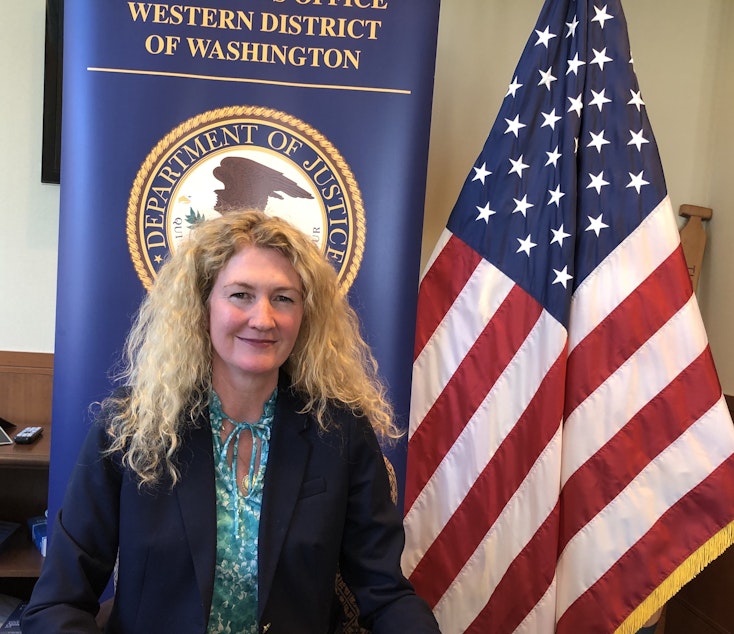Acting U.S. Attorney in Seattle turns focus to gun crimes, mental health solutions

The local U.S. Attorney’s office is looking at new tactics to stem gun violence in Seattle.
Acting U.S. Attorney Tessa Gorman said her office is participating in the Community Violence Task Force launched by SPD Chief Adrian Diaz in June. Gorman said the group has discussed a rise in incidents that involve stolen firearms as well as dozens of shots fired.
“We’re really looking at gun violence in a holistic approach — how do we prevent it?" Gorman said, adding she wants to review every possible case with local partners to see how her office can play a role, "using the tools from both our civil side of the house and our criminal side of the house.”
Since machine guns are already illegal under federal law, Gorman said her office could take civil action against people who are importing and selling devices that convert semiautomatic firearms to become fully automatic.
“I know our colleagues in the Eastern District of New York have taken an interesting approach that I’ve asked our team to explore — and they’re exploring — about if someone’s selling those in our district, could we enjoin them? could we get a temporary restraining order from the court?” Gorman said.
(Federal prosecutors in the Eastern District of New York filed civil complaints against two firearms companies for “unlawfully selling machine gun conversion devices” last January.)
Sponsored
Gorman became acting U.S. Attorney for Western Washington on July 22. She takes the place of Nick Brown. He stepped down this summer to campaign for state attorney general.
Gorman said she is also focused on improving reentry services for people being released from prison, and on the possibility of launching a mental health court at the federal level. The idea would be to keep people with mental illness out of prison.
“We’ve seen cases with people who’ve had long-term mental health issues, and we’ve seen cases where people have gone through more acute mental health moments," she said. "And those look different. How you would treat those may be different, but they’re both — in my experience — deserving of an intervention that looks different than being incarcerated.”
Gorman said her office is working with federal judges and other stakeholders to explore the feasibility of creating a mental health court to oversee certain cases.
“We use all the tools we can, but there are some cases that we feel it’s appropriate to have a prosecution intervention," she said. "And in some of those cases over the years, we see what’s really driving the conduct is a mental health issue.”
Sponsored
Alternative courts typically allow people to avoid prison, but remain under court oversight. Gorman said she should have a decision on whether to move forward by the end of this year. One question, she said, is whether the court sees a volume of cases that would justify a new, dedicated program.




